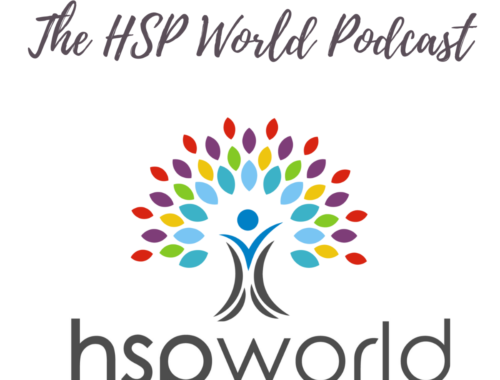
Highly Sensitives and Not Having Close Family Relationships
In an ideal world, a child grows up in a loving family environment, nurtured, and grows a healthy sense of self-esteem.
They are loved unconditionally just for being, and the parenting is “good enough.”
These children learn their feelings and needs are important, and it is normal to express them.
The result is a secure attachment allowing the forming of open, healthy relationships in the future.
There aren’t any specific figures for the proportion of the population with secure attachment, but a ballpark figure of around the 50% mark appears likely.
As a consequence, your needs may not have been validated, respected, or honored.
But how do you know if your family relationships are healthy? And what do you do if you find you do have some unhealthy family relationships?
Recognizing Unhealthy Family Relationships
So how can you tell if you have unhealthy family relationships?
Here are a few clues:
- You may feel some or all of your family members take advantage of you.
- Other siblings, or a parent, may find or have found it attractive to bully, overly criticize or tease you.
- Your parents may voice or have voiced you are “difficult” or at least more so than your brothers and sisters.
- Your parents may feel let down by you for simply being you, should you not match their ideal of being enough like them or your other sibling(s).
- You’ve been told you’re “too sensitive” and/or that you need to change.
- You’ve often heard you should “chill out” or that you’re making something out of nothing.
- You feel like the black sheep of the family.
Unhealthy family dynamics are passed down through generations, and some indications are:
- some level of narcissism,
- perfectionism,
- inability to express emotions,
- being able to express your emotions safely,
- helping a parent bring a sibling up,
- or helping family members to the detriment of your own well-being.
There are the more extreme and all too frequent family dynamics when one parent is a bully, abusive at some level, narcissistic, or is “absent” due to addiction, their own unhealed trauma, or sadly premature death.
Consequently, not valuing your family above all may cause feelings of guilt, shame, and being different from everyone else, to come to the surface.
However, as a Highly Sensitive, you can choose to view the acceptance of unhealthy generational family dynamics as your opportunity to break free of these unhealthy ways of “being” as a way of honoring your sensitivity, yourself, as well as your family members.
Acceptance, Letting Go and Grieving
You may decide to distance yourself from some or all of your family members for a time.
Letting go isn’t as quick and easy as it sounds. And rumination can become a habit, especially for Highly Sensitives.
Some pain may be in the past, and the pain may continue if you continue interacting in unhealthy family relationships.
It’s easy to blame yourself, and Highly Sensitives often struggle to accept having made a mistake, their “mistake” being they weren’t taught healthy boundaries or nurtured as a child.
But if any of your family relationships are too difficult, it’s important to accept your part in the relationships and begin practicing self-compassion, self-forgiveness, and learning from it so you can move forward.
It’s okay and healthy to acknowledge and accept your feelings: anger and pain may arise from the dynamics.
Setting healthy boundaries will be crucial to maintain your self-care.
A securely attached adult will not be offended if you set a healthy boundary or voice a need for closeness.
At one level, you can accept how your family dynamics are, while at another, protect yourself.
Not seeing or getting on with your family is a loss at some level, and it’s important to recognize and honor your grieving process.
If you have gotten to the stage where talking or seeing each other is too difficult, stay true to yourself.
You can reflect your sensitivity and withdraw honorably rather than waiting to become over-aroused and possibly exploding in a rage, declaring you will never speak to them again.
Getting Your Emotional Needs Met
The flip side of not having a relationship with some or all of your family members is the need to have loving, trustworthy relationships with the friends you do choose.
You will not always get this right.
It is a balancing act of being private enough and keeping a safe boundary in place, where you choose to reveal more about yourself as they do and the relationship develops.
On the other hand, you will manage your sensitivity so as not to be too reticent.
Think of it as the “pause to check” – “Is it okay?” without filtering out everything.
As an adult, not having close relationships with family members can work for you if you have made a choice and the reasons are sound.
Having a good support network, friends you have chosen will make this so much easier for you and your mental health, one that can still be seen as a “family.”
At some level, it is correct to say you can choose your friends but not your family; however, you do have a choice as to whether you see your family and associate with them or not, and the length and the frequency you wish to do so.
For whatever reason.
This choice might not be easy to make, and support from friends and/or a therapist may be helpful.
Self-Care
Self-care is always paramount for HSPs, and this would include all of your relationships.
It’s easy for HSPs to give too much and ultimately ignore their own needs, and ending up tired, resentful, and unhappy.
Factor in enough downtime for yourself after working out what you need.
Reach out to a close friend or a therapist if you need help working through the understandings you reach about your family relationships.
You could also make use of the many HSP groups to meet like-minded people online and hopefully face-to-face soon.
Your main responsibility is to look after yourself, allowing you to be your authentic self and be the best you can be.
You’ll benefit in the long-term by practicing self-forgiveness, self-compassion and having patience with yourself as you move through the process of creating healthy, supportive relationships in your life.
We all need others, and the pandemic has shown the effect of a lack of socializing and intimacy.
But perhaps the forced distancing is bringing a reality check regarding our family relationships.
Most people miss their families, so we think that everybody must be, yet maybe this is also the silver lining of the global pandemic – forcing us to look at the dynamics of our family relationships and figure out if they’re healthy for us.
How about you? Do you have healthy relationships with your family?






3 Comments
Karen A.
This blog post brought me to tears. Over the past year I had made the conscious decision to stop putting pressure on myself to communicate with my family. I am 55 years old, we’ve never been close but I have always felt obligated to keep in touch. It has been more than a year since I have spoke to any family member and I am feeling much better for it. The tears just now were another realization that my family is not good for me and that I am not alone in feeling this way. Thank you for your post and insight into the life of HSP’s.
David Wilson
Hi Karen, thank you for your comments and for sharing what came up for you so openly. It sounds like you took a tough decision to stop meeting up with your family, and have been able to notice your feeling better as a result, particularly now that more than a year has passed. I’m glad the article helped you realise you’re not alone in this. I wish you well on your onward journey. David
Lorraine gold
I don’t have any happy familys no more not close to any of them had fall out 7 years ago been cut of from family tiers i don’t see gran children brother sisters no body like mother father wasn’t happy with up bringing happy to be on me own distance just work have few frie ds friends 3 lovly dogs .meet people nearly every day walking dogs